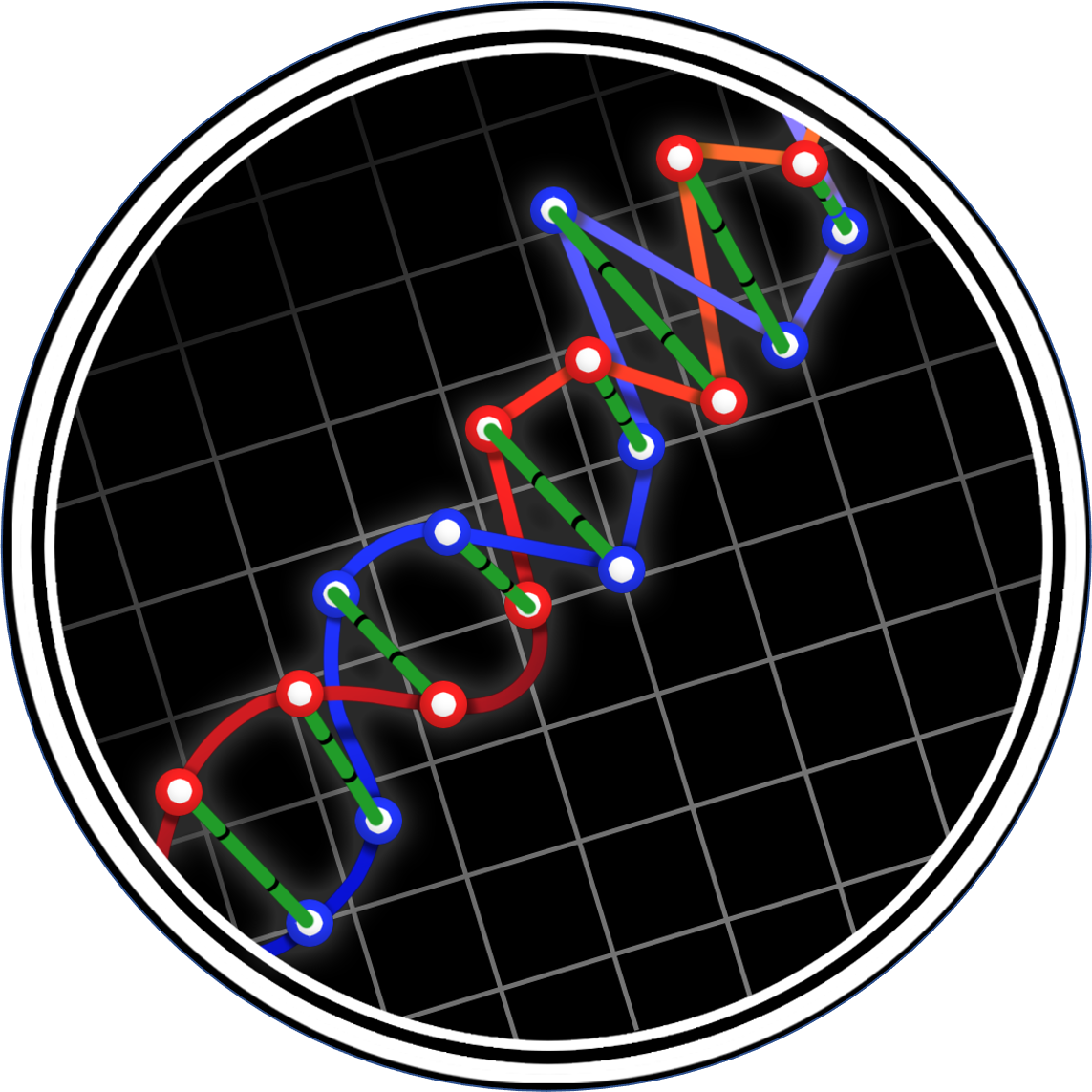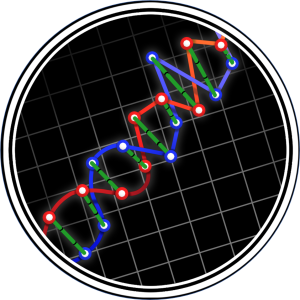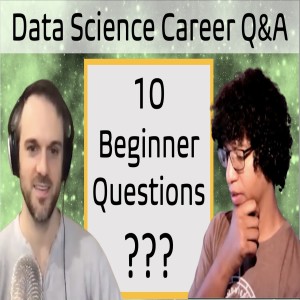
Data and Science with Glen Wright Colopy is a podcast covering critical scientific reasoning, particularly from a data science / machine learning / statistics perspective. Episodes typically focus on understanding of how to be better scientists and critical thinkers for the practical purpose of being a better data scientists. Previously called: ”Pod of Asclepius”
Data and Science with Glen Wright Colopy is a podcast covering critical scientific reasoning, particularly from a data science / machine learning / statistics perspective. Episodes typically focus on understanding of how to be better scientists and critical thinkers for the practical purpose of being a better data scientists. Previously called: ”Pod of Asclepius”
Episodes

Tuesday Dec 15, 2020
Philosophy of Data Science | S3 E1 | NeuralNets, GANs, Causality, and Medicine
Tuesday Dec 15, 2020
Tuesday Dec 15, 2020
Philosophy of Data Science Series
Session 3: Data Science Highlight Reel
Episode 1: Adler Perotte on NeuralNets, GANs, Causality, and Medicine
Watch it on...
YouTube: https://www.youtube.com/watch?v=DOf2lVHzZS4
Podbean: https://podofasclepius.podbean.com/e/philosophy-of-data-science-s3-e1-neuralnets-gans-causality-and-medicine/
Who makes it into the highlight reel of data science? Adler Perotte, because he's a clear thinker on why his data needs a specific type of analysis. In this case, it's the need to draw causal inferences from observational data. Go, GANS! Go!
You can join our mail list at: https://www.podofasclepius.com/mail-list
We're always happy to hear your feedback and ideas - just post it in the YouTube comment section to start a conversation.
Thank you for your time and support of the series!

Wednesday Dec 09, 2020
Career Q&A: 10 Questions From a Beginner Data Scientist
Wednesday Dec 09, 2020
Wednesday Dec 09, 2020
Career Q&A: 10 Questions From a Beginner Data Scientist
Watch it on...
YouTube: https://youtu.be/ftikMj7MoYM
Podbean: https://podofasclepius.podbean.com/e/career-qa-10-questions-from-a-beginner-data-scientist/
This week's episode is likely of interest to early career data scientists or those interested in joining the field. Richard Franzese (Certara) & Glen Wright Colopy (Pod of Asclepius) team up to answer 10 questions from Ujjwal Oli, an MSc student at George Washington University MSc Program.
The questions range from technical requirements, to desirable soft skills and domain knowledge, to "how can I get an internship if they require prior experience?"
Please forward to any early-career statisticians or data scientists who would be interested.
Thank you for your support of the series!
You can join the mail list here: https://www.podofasclepius.com/mail-list
#datascience #career #job #jobadvice

Tuesday Dec 01, 2020
Philosophy of Data Science | Deborah Mayo | Philosophy of Science & Statistics
Tuesday Dec 01, 2020
Tuesday Dec 01, 2020
Philosophy of Data Science | Keynote 1 Presentation | Philosophy of Science & Statistics
Philosophy of Data Science Series
Keynote with Deborah Mayo
Episode 2: The Philosophy of Science & Statistics
In the first keynote of the Philosophy of Data Science Series we have a 2-part interview with Deborah Mayo (Virginia Tech).
In the second part of our keynote, Deborah Mayo covers the interplay between scientific and statistical philosophy. Deborah highlights some common scientific fallacies, along with suggestions of where statistical thinking can be made more rigorous.
Watch it on...
YouTube: https://youtu.be/9GGAXZ6htrA
Podbean: https://podofasclepius.podbean.com/e/philosophy-of-data-science-keynote-1-presentation-philosophy-of-science-statistics/
You can join our mail list at: https://www.podofasclepius.com/mail-list
We're always happy to hear your feedback and ideas - just post it in the YouTube comment section to start a conversation.
Thank you for your time and support of the series!

Monday Nov 16, 2020
Monday Nov 16, 2020
Philosophy of Data Science Series
Session 1: Scientific Reasoning for Practical Data Science
Episode 4: Values and Subjectivity in Data Science
The Value-Free Ideal is a central tenant of objective science. But how do values, value judgements, and subjectivity leak into the practice of data science and statistics. To what extent is it desirable for science to be informed by values? Kevin Zollman (Carnegie Mellon University) covers the range of key ideas, from Heather E. Douglas to W.E.B. du Bois.
Watch it on...
YouTube: https://youtu.be/9USkWtX-ydc
Podbean: https://podofasclepius.podbean.com/e/philosophy-of-data-science-s01-e04-values-and-subjectivity-in-data-science/
You can join our mail list at: https://www.podofasclepius.com/mail-list
We're always happy to hear your feedback and ideas - just post it in the YouTube comment section to start a conversation.
Thank you for your time and support of the series!
0:00 Intro
0:03 Welcome Kevin Zollman (Carnegie Mellon University)!
1:44 Is Science Value-Free?
6:08 How might values affect science?
9:00 Choice of Research Problem
10:45 Loss Functions
18:34 Choice of Variables
24:10 Choice of Statistical Model
29:30 Minimizing the Values in Science (W.E.B. du Bois)
35:20 Philosopher in Science
41:20 Statements on Generalizability
47:45 Clarifying Subjective Choices
52:45 Conflicts between Scientific Disciplines
61:18 Scientific Value Judgments & Self Correcting Science
67:50 Choice in Metrics and Research Focus
70:30 Concluding Ideas

Monday Nov 09, 2020
Monday Nov 09, 2020
Philosophy of Data Science Series
Session 2: Essential Reasoning Skills for Data Science
Episode 4: Intro to Abductive Reasoning for Data Scientists
Watch it on...
YouTube: https://youtu.be/SzQn9SPVhRU
Podbean: https://podofasclepius.podbean.com/e/philosophy-of-data-science-s02-e04-intro-to-abductive-reasoning-for-data-scientists/
The third and final of our (planned) short tutorials on key modes of critical reasoning. Abduction is common called "inference to the best explanation"...so it's easy to see why this concept is important for data scientists.
Huub Brouwer (Utrecht University) walks us through a brief tutorial on how even a world-famous infer-er can get this wrong and how data scientists can avoid the same mistake.
You can join our mail list at: https://www.podofasclepius.com/mail-list
We're always happy to hear your feedback and ideas - just post it in the YouTube comment section to start a conversation.
Thank you for your time and support of the series!
0:00 Intro
0:18 Example of Abduction in Action
4:55 Definition of Abduction
6:21 Applying Abductive Reasoning
8:35 Why is Abduction Not Deduction?
14:55 Abduction in Data Sciences
17:40 Conclusion

Monday Nov 02, 2020
Monday Nov 02, 2020
Philosophy of Data Science Series
Session 2: Essential Reasoning Skills for Data Science
Episode 3: Intro to Inductive Reasoning for Data Scientists
Watch it on...
YouTube: https://youtu.be/lNOUvOUE_KE
Podbean: https://podofasclepius.podbean.com/e/philosophy-of-data-science-s02-e03-intro-to-inductive-reasoning-for-data-scientists/
New episodes of the Philosophy of Data Science Series will now be published on Mondays!
Today's episode is a short introduction to a fundamental concept. Definitely worth your time!
Inductive reasoning is the fundamental challenge to scientific rigor. Induction is baked into methods like K-fold cross validation or generalizing from a sample to a population. However, many statisticians and data scientists are unfamiliar with the term and its implications. Joseph Wu (Brown University) gets us up-to-speed with a 10-minute presentation on the fundamental role of induction in scientific reasoning.
You can join our mail list at: https://www.podofasclepius.com/mail-list
We're always happy to hear your feedback and ideas - just post it in the YouTube comment section to start a conversation.
Thank you for your time and support of the series!
Outline
0:00 Intro
0:18 Inductive vs Deductive Reasoning
2:35 Overview of Induction, Deduction, and Abduction
3:23 Types of Induction: Everyday Life vs Statistical Generalizations
5:25 Sample to Population Induction
6:48 Population to Individual Induction
9:35 The Problem of Induction
11:52 Induction: Fallible but Powerful

Wednesday Oct 28, 2020
Philosophy of Data Science | S02 E02 | Intro to Deductive Reasoning for Data Scientists
Wednesday Oct 28, 2020
Wednesday Oct 28, 2020
Philosophy of Data Science Series
Session 2: Essential Reasoning Skills for Data Science
Episode 2: Intro to Deductive Reasoning for Data Scientists
Watch it on...
YouTube: https://youtu.be/y93D-55wgX8
Podbean:
Deductive reasoning pervades statistics and data science...but how far can it get us to the right conclusion from data? Elina Vessonen (Finnish Institute of Health) gives a great 20-minute presentation reviewing the role of deduction in scientific reasoning. Elina begins with a common statistical example and then covers common deductive fallacies and their role in science.
It's a short and gentle introduction to a fundamental concept. Definitely worth your time!
You can join our mail list at: https://www.podofasclepius.com/mail-list
We're always happy to hear your feedback and ideas - just post it in the YouTube comment section to start a conversation.
Thank you for your time and support of the series!
0:00 Intro
0:18 Deduction Example in Statistics
4:05 Deductive Reasoning: Basic Concepts
6:42 Deductive Reasoning in Science
11:00 Falsification
16:05 Deductive Reasoning: A Summary

Wednesday Oct 21, 2020
Wednesday Oct 21, 2020
Philosophy of Data Science Series
Session 2: Essential Reasoning Skills for Data Science
Episode 1: Round Table on Essential Reasoning Skills for Data Science
Session 2 "Essential Reasoning Skills for Data Scientists" is kicking off with a roundtable discussion with Elina Vessonen (Finnish Institute for Health & Welfare), Joseph Wu (Brown University), and Huub Brouwer (Tilburg University & Utrecht University).
One of the major challenges in data science is that we use three different modes of critical reasoning (deduction, induction, and abduction) on a daily (or even hourly) basis. It's important to understand the strengths and weaknesses of each mode of reasoning so that we can apply them as appropriate. This round table will begin this conversation on the modes of reasoning and how it applies to & science and data science.
Watch it on...
YouTube: https://www.youtube.com/watch?v=5bOuy6VA8Hg
Podbean: https://podofasclepius.podbean.com/e/philosophy-of-data-science-s02-e01-round-table-on-essential-reasoning-skills-for-data-science/
You can join our mail list at: https://www.podofasclepius.com/mail-list
We're always happy to hear your feedback and ideas - just post it in the YouTube comment section to start a conversation.
Thank you for your time and support of the series!
0:00 Intro
0:10 Roundtable on Critical Reasoning Skills
2:50 Guest Introductions
5:48 Thesis: Data Science Use All Modes of Reasoning Daily
6:45 Taxonomy of Deduction, Induction, and Abduction
17:21 The Problem of Induction
32:18 The Problem of Induction Creeping into Deduction
36:45 Bayesian Applicability Indices and Signal Quality Indices
40:55 What is "The" Scientific Method?
44:08 What is Pseudo-Science?
47:35 Theory vs Data/Evidence
50:48 Final Remarks

Wednesday Oct 07, 2020
Philosophy of Data Science | S01 E03 | Communicating the Science in Data Science
Wednesday Oct 07, 2020
Wednesday Oct 07, 2020
Philosophy of Data Science Series
Session 1: Scientific Reasoning for Practical Data Science
Episode 3: Communicating the Science in Data Science
One of the biggest challenges in data scientists is to communicate why your work matters. Kathy Ensor (ASA 2022 President and Rice University’s Noah Harding Professor of Statistics) covers how to distinguish yourself as a professional by communicating both your scientific and technical value. (Hint: The same scientific reasoning that helps you do good work in data science will also help you critically assess “how” and “what” to communicate.)
Watch it on...
YouTube: https://youtu.be/Vtasc0GGKDs
Podbean:
You can join our mail list at: https://www.podofasclepius.com/mail-list
We're always happy to hear your feedback and ideas - just post it in the YouTube comment section to start a conversation.
Thank you for your time and support of the series!

Wednesday Sep 30, 2020
Philosophy of Data Science | S01 E02 | Scientific Reasoning for Practical Data Science
Wednesday Sep 30, 2020
Wednesday Sep 30, 2020
Philosophy of Data Science Series
Session 1: Scientific Reasoning for Practical Data Science
Episode 2: Scientific Reasoning for Practical Data Science
Scientific reasoning plays an essential role in data science and statistics, both for developing new methods and applying our methods to real-world problems. In Session 1's titular episode, Andrew Gelman talks through the role of scientific thinking in his approach to data analysis. He also highlights the good ideas that have been generated by the wider statistical community.
Watch it on...
YouTube: https://youtu.be/R6mq5Esjzfw
Coming up next week: Communicating the Science in Data Science with Kathy Ensor (Rice University & 2022 ASA President)
We're always happy to hear your feedback and ideas - just post it in the YouTube comment section to start a conversation.
Thank you for your time and support of the series!
You can join our mail list at: https://www.podofasclepius.com/mail-list
#datascience #statistics #machinelearning #ai #science #stem
